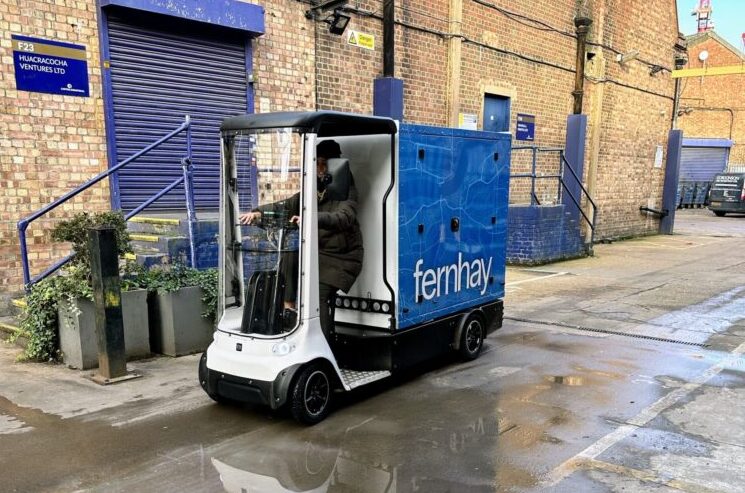In the pursuit of sustainable urban transportation solutions, Fernhay’s eCargo bikes, particularly the eQuad, have emerged as game-changers. Designed to address the growing need for eco-friendly and efficient last-mile delivery systems, these innovative bikes are transforming urban logistics and contributing significantly to the green transport movement. As cities become more congested and environmental concerns grow, the adoption of such green solutions becomes increasingly vital.
The Rise of eCargo Bikes
The urban landscape is changing rapidly with the rise of eCommerce, leading to an increase in the demand for efficient and sustainable delivery solutions. Traditional delivery vehicles, such as vans and trucks, often contribute to congestion, pollution, and inefficiencies, especially in densely populated areas. eCargo bikes, like Fernhay’s eQuad, provide a compelling alternative. These bikes are designed to navigate narrow streets, reduce carbon emissions, and lower operational costs, making them an attractive option for businesses and cities aiming to enhance their green credentials. With urban areas continuously expanding, the role of eCargo bikes in reducing traffic and emissions is more pertinent than ever.
Features and Benefits of the eQuad
1. Sustainable Design
The eQuad is a four-wheeled electric cargo bike that stands out for its sustainability. It is powered by a battery, significantly reducing the carbon footprint compared to traditional petrol or diesel delivery vehicles. The bike’s design allows for substantial cargo space without the emissions associated with conventional delivery methods. This focus on sustainability not only benefits the environment but also aligns with the growing consumer demand for eco-friendly products and services.
2. Efficiency in Urban Logistics
One of the most significant advantages of the eQuad is its ability to manoeuvre through urban areas more efficiently than larger vehicles. Its compact design and agility enable it to avoid traffic congestion and access areas that are off-limits to larger delivery vehicles. This efficiency translates to faster delivery times and improved reliability in meeting delivery schedules. Moreover, its ease of navigation in tight spaces enhances the overall delivery experience, both for the driver and the customer.
3. Cost-Effectiveness
Operating an eQuad is more cost-effective than using a van or truck. The lower cost of electricity compared to fuel, reduced maintenance needs, and the absence of congestion charges in many cities make the eQuad a financially viable solution for businesses. Additionally, the durability and longevity of the eQuad ensure a high return on investment over time. This economic advantage can be particularly beneficial for small and medium-sized enterprises looking to optimise their delivery operations without compromising on sustainability.
Impact on Sustainability
1. Reducing Carbon Emissions
Fernhay’s eQuad significantly contributes to reducing carbon emissions in urban areas. With zero tailpipe emissions, the eQuad helps in lowering the overall carbon footprint of delivery operations. This reduction is crucial in cities where air quality is a major concern and aligns with global efforts to combat climate change. By incorporating eQuads into their fleets, businesses can play a pivotal role in achieving local and international environmental targets.
2. Promoting Green Business Practices
Businesses that adopt the eQuad are seen as leaders in sustainability, enhancing their reputation and appeal to eco-conscious consumers. By integrating eCargo bikes into their delivery fleet, companies demonstrate a commitment to reducing environmental impact, which can also be a powerful marketing tool. This shift towards greener practices not only benefits the environment but also helps businesses differentiate themselves in a competitive market increasingly driven by environmental considerations.
Enhancing Urban Living
1. Reducing Traffic Congestion
The eQuad helps in alleviating traffic congestion, a common issue in many cities. Its ability to navigate through narrow streets and bike lanes reduces the number of delivery vans on the road, contributing to smoother traffic flow and less congested urban environments. This reduction in congestion also leads to less noise pollution, creating a more pleasant living environment for city residents.
2. Improving Air Quality
By replacing traditional delivery vehicles with eCargo bikes, cities can see a noticeable improvement in air quality. This change is particularly beneficial in urban areas with high population density, where pollution from vehicles can significantly impact public health. Cleaner air leads to healthier residents and can reduce the burden on healthcare systems, highlighting the broader societal benefits of adopting eCargo bikes.
The Future of eCargo Bikes
As cities continue to grow and the demand for sustainable delivery solutions increases, eCargo bikes like the eQuad are expected to play a crucial role in shaping the future of urban logistics. Innovations in battery technology, increased support from city planners, and the growing awareness of environmental issues will likely drive further adoption of eCargo bikes. The continuous development in this field promises even more efficient and versatile solutions, solidifying the eQuad’s place in future urban transport systems.
Conclusion
Fernhay’s eCargo bikes, especially the eQuad, are leading the green transport movement by providing a sustainable, efficient, and cost-effective alternative to traditional delivery vehicles. Their ability to reduce carbon emissions, alleviate traffic congestion, and improve air quality makes them a vital component of modern urban logistics. As more businesses and cities recognise the benefits of eCargo bikes, the shift towards greener, more sustainable transportation solutions will continue to gain momentum, paving the way for a cleaner, healthier future. The ongoing evolution of eCargo bikes ensures they will remain at the forefront of sustainable urban transport.

